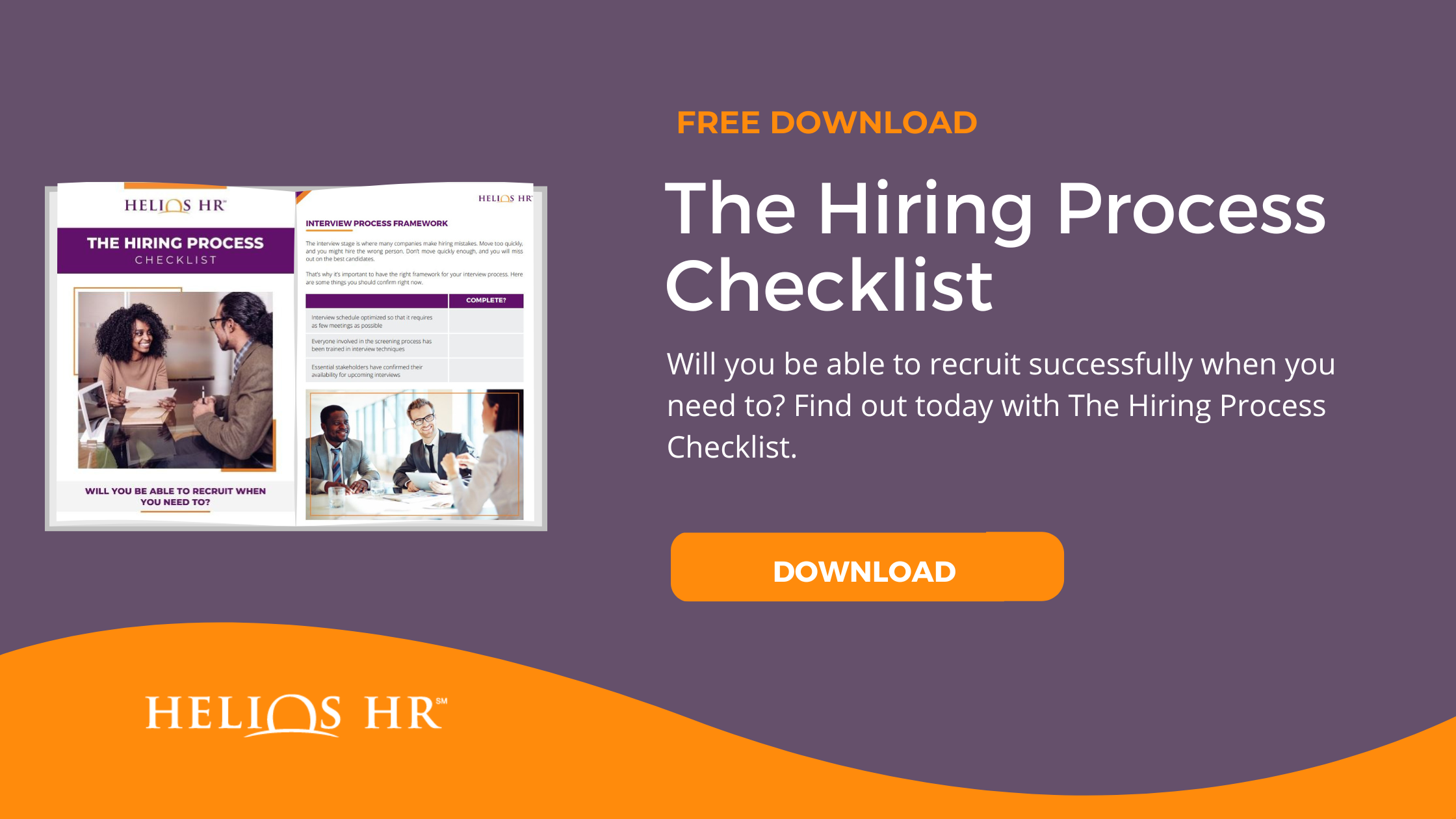By: Debra Kabalkin on July 8th, 2021
Candidate Declined Job Offer? Here’s What You Need to Do
The recruitment process can be grueling, especially when you’re trying to fill a high-level position. That’s why it’s so disheartening when you finally find an ideal person, only for them to say, “thanks, but no thanks.” There are many reasons that candidates decline job offers, and there are lots of things you can do to improve your odds.
Why do candidates decline job offers? It can happen for any number of reasons. They may have accepted another offer elsewhere, or they may feel your company culture isn't the right fit. Often, these factors are outside of your immediate control.
But there are some things that will always cause talented applicants to think twice before they accept your offer. Consider the following issues and ask yourself honestly if they apply to your business.
The main reasons candidates decline job offers
These are some of the most common problems that send great applicants running to a rival employer. You'll also find some ideas for potential solutions that can help you secure your dream candidate.
1. The interview process is taking too long
The average interview process takes an average of 23.8 days, but this can vary greatly depending on the role. Executive positions and highly skilled jobs might require a series of interviews and tests, all of which will extend the total time from application to offer. During this time, your candidate will receive other offers. If you’re not fast enough, you’ll lose them.
Solution: Organize your interview plan ahead of time so there are no delays in your process. Use technology to conduct remote interviews. Remember to keep in touch with the candidate and set reasonable expectations about the length of your hiring process. Use candidate experience surveys to identify problems.
Related reading: 8 Steps to Speed Up Your Hiring Process and Secure Top Talent
2. The job profile is wrong
Before you start your candidate search, you need to define your precise requirements for the role. If you don’t get this step right, then you will receive applications from candidates who are not an appropriate fit. Job applicants can sense when it’s not going to work out, and they may opt for a more suitable employer instead.
Solution: Talk to all stakeholders beforehand and agree on a detailed job profile. Confirm which skills requirements are must-have and which are nice-to-haves. Map out reasonable expectations for job duties and responsibilities. Ask for feedback from an HR professional or someone with experience in a similar role.
3. There are issues with your culture
Organizational culture can be difficult to define. You may think that your culture is supportive and inclusive, but candidates might see things the same way. Aspects of your culture may appear as big red flags, causing them to seek opportunities elsewhere. Candidates are unlikely to mention these concerns explicitly in their refusal letters.
Solution: Conduct regular pulse surveys to assess the current state of your culture. Do employees feel supported and included? Are they struggling with workloads or experiencing communications issues?
Fixing cultural issues can take time, but understanding the problem is the first step. It’s also important to keep an eye on your digital reputation on social media and check review sites like Glassdoor.
4. The compensation offer is below market value
Salary plays a major role in a candidate’s decision. Even if the job seeker doesn’t have another offer, they may choose to keep searching if you fail to meet their expectations. That said, salary is only one part of a total rewards package. Benefits, perks, and other add-ons can attract potential employees even when the base salary is on the lower side.
Solution: Work with a compensation planning specialist to build an offer that allows you to compete without creating an unsustainable wage bill. Use benefits and perks to sway candidates considering multiple offers.
Related reading: What Makes Up A Great Employee Total Rewards Package?
5. There’s no clear career path
Every candidate is on a unique journey towards their personal goals. Ideally, they would like an employer who will aid that journey in the form of training, certification, experience, and promotions. If a candidate sees no clear career path at your company, they’ll seek out an employer who supports their future.
Solution: Make professional development a fundamental part of your approach to human capital management. Work with existing employees to develop career plans with meaningful, actionable steps. Promote your dedication to helping your people realize their dreams.
6. There’s a lack of diversity in your hiring process
Diversity issues can be self-perpetuating. When you only have people from one demographic on your interview panel, they tend to reinforce each other’s biases about people from other backgrounds. They also miss out on things that might make your company to unattractive to candidates from diverse backgrounds. In some cases, your team might unconsciously commit microaggressions that drive applicants away.
Solution: The only way to build a more diverse workforce is to include a wide range of voices in your recruitment process. Look at the people involved in decision-making, especially interviewers. If there’s a lack of diversity in the team, then include people from other areas. Make sure that everyone is equally empowered to contribute to the hiring process.
Related reading: Why Your Hiring Practices Could Be Part of the Diversity Problem
7. The working schedule isn’t flexible
Prior to the pandemic, flexible schedules and remote working were often seen as perks. Now that everyone has had some experience of working remotely, candidates no longer want to sit in an office from 9-5. Employers who’ve adapted to the world of flexible working are more likely to recruit and retain great talent than those who stick to the old ways. One survey found that 44% of workers would take a pay cut in exchange for a more flexible schedule.
Solution: Consider the lessons learned from the pandemic and think about how to build a permanent flexible working solution. Most workers favor a hybrid schedule, with a mix of in-office and at-home days each week. Talk to your current team and establish the best option.
Get that "yes" with Recruitment Process Outsourcing
Recruitment Process Outsourcing (RPO) gives you instant access to talented recruitment professionals who can help turn that "no" into a "yes".
Want to find out more about how RPO can help you build your ideal team? Book a no-obligation consultation call with a Helios HR rep today.





